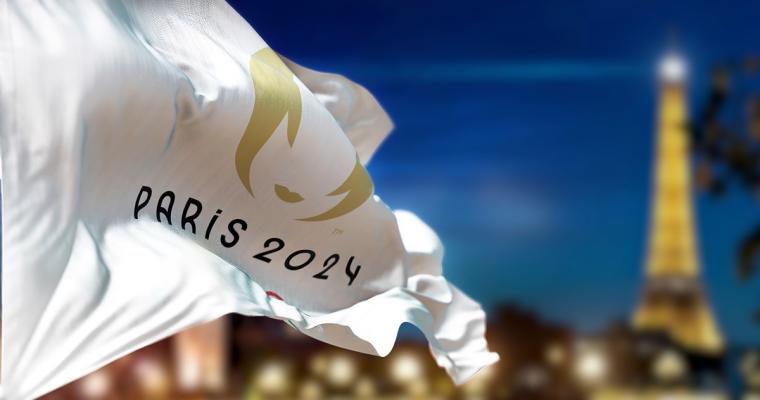
Hard to believe that the 2024 Summer Olympics Opening Ceremony is less than six months away. This year’s Games will take place in Paris only three years after the pandemic-delayed 2020 Tokyo Games — which took place in 2021 but did not undergo a name change.
Just as Tokyo organizers had to make major adjustments along the way, French Interior minister Gerald Darmanin recently announced that attendance for the Opening Ceremony already has been downsized from an anticipated 600,000 to about 300,000. The show is scheduled to take place on the River Seine on July 26, the first time the ceremony — traditionally rich in pomp and circumstance — will be held outside of a stadium setting.
According to the Associated Press:
The athletes will be paraded through the heart of the French capital on boats on the Seine along a 6-kilometer (3.7-mile) route. Both banks of the river will be lined by spectators, behind multiple security cordons.
Speaking on French TV channel France 2, Darmanin said current plans would allow for 100,000 paying spectators with a waterside view, and more than 220,000 people with free tickets on the river’s upper embankments.
Organizers had originally estimated that around 600,000 spectators could watch the ceremony, but Darmanin did not give a reason for why they have revised those figures. …
 In December, French President Emmanuel Macron said the ceremony could be moved for security reasons if France is hit again in the run-up by extremist attacks. He cited deadly extremist attacks that hit Paris in 2015 as an example of the type of severe crisis that could force a rethink.
In December, French President Emmanuel Macron said the ceremony could be moved for security reasons if France is hit again in the run-up by extremist attacks. He cited deadly extremist attacks that hit Paris in 2015 as an example of the type of severe crisis that could force a rethink.
Already, French officials have bolstered protection of the Olympic torch and its carriers as it travels across the country beginning in May. “One hundred police officers and agents will accompany it” in a “security bubble,” Darmanin said in January.
According to Olympics news website Inside the Rings, “[w]ithin this security bubble, 18 police officers and gendarmes dressed as civilians will ensure the safety of the person running the relay between Marseille and Paris, providing close protection for both the person and the torch. As far as the security of the relays is concerned, it has been revealed that a mobile force of 100 agents will be stationed at the front and back of the convoy and will also be responsible for combating ‘any form of public disorder’ that may occur.”
Another potential threat to this summer’s Games could come in the form of extreme heart. Citing a 2003 heatwave in France that killed thousands of people and took a toll on the country’s health system, Inside the Games reports that some researchers are predicting another heatwave this summer that could rival or even surpass the magnitude of the one in 2003. Back then, temperatures reached record highs of 35 degrees Celsius, or 95 degrees Fahrenheit, with little cooling at night.
“It would be a catastrophic scenario, and the possibility exists because of climate change, warn researchers, a problem of which the organizers say they are ‘fully aware,’” according to Inside the Games, which noted scientists calculated the worst Paris heatwave possible over the Summer Games’ 15 days — from July 26 to Aug. 11.
“In 20 years, the climate has changed, and the idea was to warn the authorities that something significantly much worse than 2003 could happen,” Pascal Yiou of France’s Laboratory of Climate and Environmental Sciences (LSCE) and lead author of the study published in the journal Npj Climate and Atmospheric Science told Inside the Rings.
According to the website, “Olympic organizers claim to be ‘fully aware of the impact that climate change can have on the competitions. … Heatwaves and extreme weather conditions are hypotheses that we must fully anticipate to take the necessary measures.’”
Those measures could include the postponement of some events, although “many events are relatively easy to run even in high temperatures, with the use of air conditioning on the track and in the stands, especially those held outdoors,” Inside the Rings stated. “In all cases, excessive use of energy to lower temperatures would be an option, which is contrary to the goal of hosting more sustainable and environmentally friendly games.”
Concerns about heat have plagued the Summer Olympics and FIFA World Cups in the climate change era. The 2020 Games held in late July and early August 2021 in Tokyo were proclaimed by meteorologists as “the hottest Games in history,” while the 2022 World Cup in Qatar was moved to November from the traditional summer months avoid scorching temperatures for players, fans and others.
“Would it not be possible to change the dates if the Games were held in the northern hemisphere? Moving them to June, September or even October would obviously be more temperate and better for the environment, as well as for the athletes and the fans,” Inside the Games concluded.

